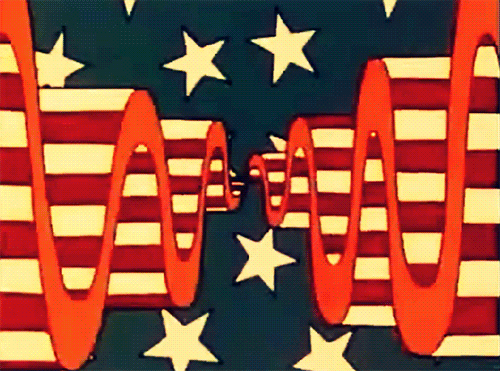BIG TECH IN A BOX
 |
| When it comes to the dominance of Big Tech, society may be partly responsible for creating a monster |
It's as if Godzilla hatched from its giant radioactive egg, while we all watched complacently, and then grew into a civilization-eating monstrosity.
And now that the Big Four tech giants — Facebook, Google, Amazon, and Apple — have suddenly gobbled up whole industries, stomping through the smoking ruins of the advertising, retail, music, and news industries, the world's politicians are trying to turn the clock back.
Empty seats behind nameplates for Facebook executives Mark Zuckerberg and Sheryl Sandberg during recent hearings in Ottawa were a glaring demonstration that Canadian Parliament — even when backed by the support of international lawmakers — does not have the firepower to blast this digital economy Godzilla into submission.
But even as politicians from both sides of Congress gang up this week, it is almost impossible to imagine even the full might of the U.S. government can do much to subdue industries built in an interconnected age — ones that are still growing and transforming in unpredictable ways.
"The current landscape suggests there are only one or two significant players in important digital spaces, including internet search, social networks, mobile, and desktop operating systems, and electronic book sales," the head of the U.S. Department of Justice's antitrust division, Makan Delrahim, said in a speech this week, titled Antitrust Enforcement and Digital Gatekeepers.
Cheap or free — but still a monopoly
In economics, the main concern about monopolies is that they are able to charge higher prices than in a competitive marketplace, as consumers have no alternative to that single supplier.
But in his comprehensive address, the Justice Department's antitrust chief pointed out that monopoly power is not all about price. Amazon, for example, may offer the cheapest prices and still be a monopoly. Google or Facebook may offer services for free, thereby prevent others from competing.
"As we think about antitrust enforcement in the digital economy, the key issues that antitrust enforcers must untangle are whether a company is growing due to superior price, quality, and innovation, or whether some transaction or business practice is, on balance, anticompetitive in purpose and effect," said Delrahim.
 |
| An empty chair sits behind the name tags for Facebook's Mark Zuckerberg and Sheryl Sandberg as the International Grand Committee on Big Data, Privacy and Democracy met in Ottawa last month. |
In theory, charging the lowest prices can lead to the bankruptcy of the competition, allowing the market leader to raise prices later. But the domination of an entire technological platform can be even more insidious, preventing small-fry competitors from presenting their own innovations to the world — especially when the giants quickly gobble up innovative challengers through acquisition.
And while the U.S. government celebrates its successes in breaking up the Standard Oil monopoly in 1911, the AT&T telephone monopoly in the '70s and, more recently, Microsoft's dominance of the PC market through Internet Explorer, it has failed to prevent the systemic domination by the "digital gatekeepers" of long-established industries at the heart of business and society.
 |
| Amazon, Apple, Facebook, and Google are collectively known as the Big Four in tech, dominating the way we live our lives online — and perhaps off |
It is also too late for much of the newspaper industry, with many formerly strong outlets forced to close down or to cut editorial staff to the bone, as the advertising dollars used to invest in quality journalism moved to these dominant online platforms.
In wiping out the news industry, digital gatekeepers "have operated with virtual immunity from the antitrust laws," said Rep. David Cicilline, of Rhode Island, as the congressional antitrust hearings began this week.
But even if Congress moves quickly, it is hard to imagine the news industry returning to its former health and power — even if Facebook and Google were forced to more fairly share their advertising revenue with content creators, as many have proposed.
Hard to solve
In its quest to eliminate the digital gatekeeper monopolies, Congress may face a number of insurmountable problems.
One is the speed with which technology transforms. Any new rules by the plodding legislative and judicial process could fail to catch up with an industry that has already moved on.
A related problem is the complexity created by digital connectedness. Problems like security and privacy, high on the congressional agenda, are not something that can be solved once and for good.
In a world where the Phoenix pay system cannot print an accurate cheque after years of trying, governments may be fearful of breaking up powerful companies that are able to do things right.
And unlike in previous antitrust actions, another snag is that global tech giants are no longer under the purview of any single government. Global competitors, especially from China and especially in the current hostile trade climate, are outside congressional control.
But far more important than those may be the fact that a globalized digital technology has already transformed not just industry, but our entire society in ways that simply cannot be undone.
Beyond economics, social and civil discourse have been changed forever: Instant information in your pocket. The ability to share your views with a wide audience. The ability to try to manipulate the political dialogue — for good or for ill.
In economics, there is the concept of the "natural monopoly" — a business that, without any attempt at collusion, dominates an entire sector.
When we have access to the whole world, instead of choosing a variety, we may all prefer to narrow our choices.
With our urge to watch the same team play, to shop in the most convenient way, to stream the most popular videos, read the hottest news, and talk in the forums where all of our friends are talking too, it may be that we've all contributed to creating a monster that will be hard even for Congress to kill.
A ‘wires and lights in a box’
Today’s public discourse and political climate are far different than they were six decades ago, which prompted us to wonder, what would Murrow say to our convention attendees now?
Twitter CEO speaks out after tech giant suppresses NY Post's Hunter
Biden story
https://youtu.be/h0gS9XcCTpE?t=5
Is Sidney Powell's "KRAKEN" Conspiracy Theory? Wait Until She Gets In COURT!
https://www.youtube.com/watch?v=owAFhEesVyk&feature=youtu.be&t=87
Trey Gowdy demands 'zero acceptance' for errors in elections
https://youtu.be/cgqanJnzjyM?t=176



One of the penalties for refusing to participate in politics is that you end up being governed by your inferiors. -- Plato (429-347 BC)
THE PATRIOT
Knowledge Is Power And Information is Liberating: The FRIENDS OF LIBERTY BLOG GROUPS are non-profit blogs dedicated to bringing as much truth as possible to the readers.
COMPLAINTS ABOUT OUR GOVERNMENT REGISTERED HERE WHERE THE BUCK STOPS!
GUEST POSTING: WOULD YOU LIKE TO BE PUBLISHED ... DO YOU HAVE SOMETHING ON YOUR MIND?
Knowledge Is Power - Information Is Liberating: The Patriot Welcome is a non-profit blog dedicated to bringing as much truth as possible to the readers.
Big Tech has greatly reduced the distribution of our stories in our readers' newsfeeds and is instead promoting mainstream media sources. When you share with your friends, however, you greatly help distribute our content. Please take a moment and consider sharing this article with your friends and family. Thank you
Keep on seeking the truth, rally your friends and family and expose as much corruption as you can… every little bit helps add pressure on the powers that are no more.



No comments:
Post a Comment